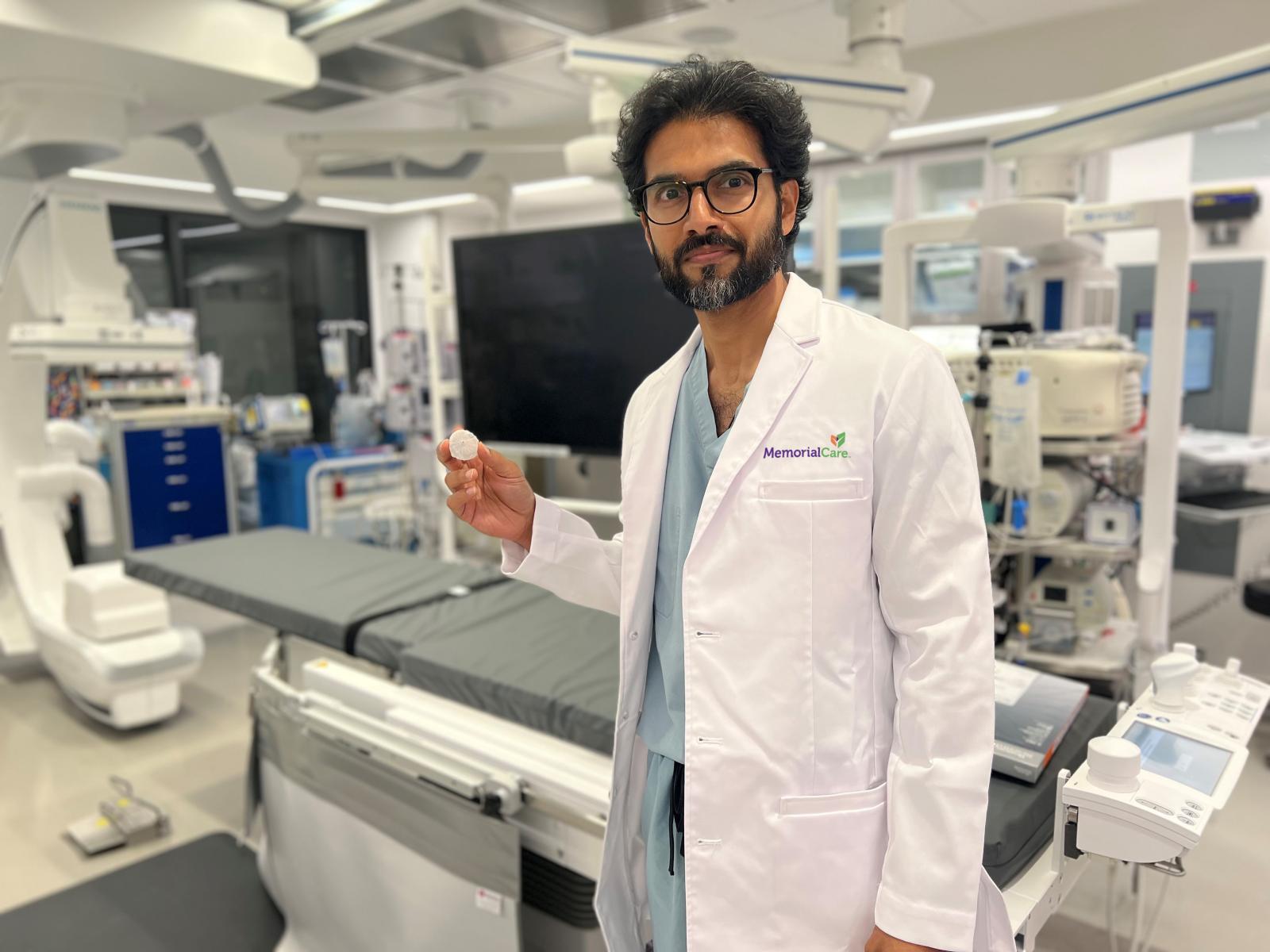It’s projected that 12.1 million people will be diagnosed with atrial fibrillation (AFib) by 2030, according to the Centers for Disease Control and Prevention (CDC). AFib is a heart rhythm disorder characterized by a fast, irregular heartbeat which can lead to blood clots, stroke and heart failure. MemorialCare Heart & Vascular Institute is offering patients with AFib who cannot tolerate blood thinners, a minimally invasive procedure that closes the left atrial appendage and prevents blood clots from entering the bloodstream.
During AFib, the two upper chambers of the heart (the atria) quiver instead of beating properly to effectively move blood into the heart’s two lower chambers (the ventricles). AFib can cause blood to pool and clot. If a blood clot enters the bloodstream, it can travel to the brain and result in a stroke. Approximately 95% of strokes that occur in patients with AFib are from clots that form in the left atrial appendage. Many patients are prescribed a blood thinner like Warfarin to lower the risk of stroke, however, some patients experience unwanted side effects from long-term blood thinner therapy.
The MemorialCare Heart & Vascular Institute specializes in advanced, minimally invasive heart and vascular procedures to remedy AFib and other heart diseases. One of the most advanced minimally invasive heart procedures offered by the team of dedicated heart specialists to treat AFib is the WATCHMAN™ implant device.
The WATCHMAN is an alternative treatment for AFib used to reduce the risk of a stroke. The WATCHMAN device is permanently implanted into the heart to prevent blood clots in the left atrial appendage from escaping and entering the bloodstream. The WATCHMAN implant is about the size of a quarter and made from very light and compact materials commonly used in many other medical implants.
A recent study by the Food and Drug Administration showed that 96% of people who had the WATCHMAN device implanted were able to stop taking their blood-thinning medications after 45 days, and more than 92% discontinued their blood-thinning medications one year after they had the procedure.
“We’re proud to offer our patients more innovative options that are less invasive and have high success rates,” said Dr. Nikhil P. Warrier, medical director of electrophysiology, MemorialCare Heart & Vascular Institute at Orange Coast Medical Center. “The WATCHMAN can help reduce future complications caused by AFib and improve a patient’s overall quality of life.”
The MemorialCare Heart & Vascular Institute with locations at Orange Coast Medical Center, Long Beach Medical Center and Saddleback Medical Center offers the latest in advanced technologies and innovative treatments to provide you with expert care for your AFib from prevention, diagnosis, and treatment.
Are you ready to learn about your heart health risk? Take our quick online assessment to learn more.